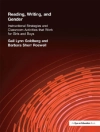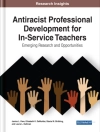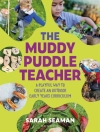`If there is a single question that presses upon the intellect of the current generation of social scientists, it is surely: ‘what do the great insights of social theory imply for the way we conduct research and write about the social world?’. Until now there has been no single text to turn to that explores the epistemological complexities of field work, the problems of writing and language, and of the logics of inquiry that link theory, method and evidence. Using Social Theory is a magisterial effort to open up the black-box of research methods, and to provide students, in a way that no other comparable text has done, with a road map for the practice of the contemporary human sciences′ –
Michael Watts, Chancellor′s Professor of Geography and Director Institute of International Studies, University of California, Berkeley
`From ‘theory talk to making it walk’, Using Social Theory is one of the most useful and interesting books on the market. The authors demonstrate how to use philosophy and social theory as an indispensable toolkit for passionate and rigorous research. Essential reading for students and teachers in the social sciences and humanities′ – Professor Elspeth Probyn, Department of Gender Studies, University of Sydney
Have you ever stopped to wonder about the influences that underpin research? If you are thinking about doing a piece of research, what difference might it make to the question you ask, to your approach to empirical work, analysis and writing of research, if you are influenced by one theoretical approach rather than another?
The chapters in this innovative guide share a common belief that thinking alongside ideas, philosophical persuasions, is an integral part of the research process; it is not an optional extra. It sets out ways to encourage the researcher to think through three key moments of the research process: the production of a research question; fieldwork; and analysis and writing.
As the authors demonstrate, research is not simply `done′: it has to be thought about and thought through. The book′s accessible style makes it suitable for anyone wishing to engage ideas in research in the social sciences and humanities.
Tabela de Conteúdo
Introduction – Michael Pryke, Gillian Rose and Sarah Whatmore
PART ONE: ASKING QUESTIONS
Introduction – Gillian Rose
A Question of Language – John Allen
The Play of the World – Nigel Clark
A Body of Questions – Gillian Rose
PART TWO: FRAMING A FIELD OF RESEARCH
Introduction – Sarah Whatmore
Imagining the Field – Doreen Massey
Generating Materials – Sarah Whatmore
Practising Ethics – Nigel Thrift
PART THREE: WRITING UP THE RESEARCH
Introduction – Michael Pryke
Telling Materials – Mike Crang
Writing Reflexively – Nick Bingham
Situated Audiences – Michael Pryke
Sobre o autor
Sarah is a graduate of University College London where she gained a BA (Geography) in 1981; an M.Phil. (Town Planning) in 1983 and, after a stint working for the Greater London Council, a Ph D (Geography) in 1988. She spent 12 years teaching in the School of Geographical Sciences at the University of Bristol, where she was promoted to a Chair in Human Geography in 1999 and awarded a DSc for published research in 2000. She moved to the Geography Discipline at the Open University in September 2001 as Professor of Environmental Geography. Sarah has also held visiting appointments in several institutions overseas including the University of California, Santa Cruz and the University of Wisconsin, Madison (USA); the University of Newcastle, (Australia); and the University of Trondheim (Norway).
A Fellow of the Royal Geographical Society (with the Institute of British Geographers) for nearly 20 years, Sarah was elected to the Council of the RGS/IBG and to membership of the Research Committee in June 2004 for 3 years. She is also an elected member of the Academy of Learned Societies in the Social Sciences and a Fellow of the RSA (Royal Society for the encouragement of Arts, Manufactures and Commerce). She is currently an editor of Environment and Planning, A (Pion) and of the Blackwell Dictionary of Human Geography (5th edition), and serves on the editorial boards of several journals.
Her research focuses on relations between people and the material world, particularly the living world, and the spatial habits of thought that inform the ways in which these relations are imagined and practiced in the conduct of science, governance and everyday life. She has published widely on the theoretical and political implications of these questions in two main directions.












